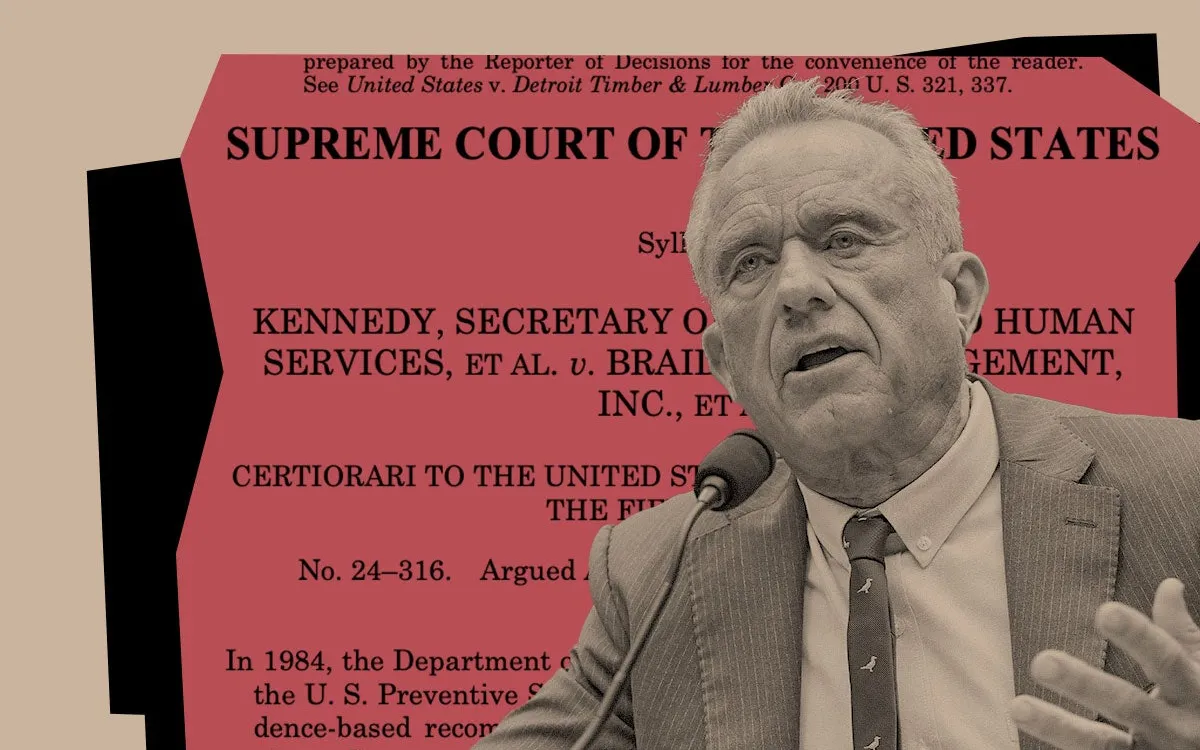
On Friday, the Supreme Court upheld a crucial element of Obamacare against a constitutional challenge, voting 6–3 in favor of maintaining the integrity of the Affordable Care Act (ACA). However, this ruling inadvertently granted Robert F. Kennedy Jr., the current Secretary of Health and Human Services, unprecedented control over American health care, far exceeding what Congress had initially intended.
As a result of the court's decision in Kennedy v. Braidwood Management, Kennedy now possesses significant authority to appoint and dismiss members of the U.S. Preventive Services Task Force (PSTF), a critical body responsible for determining insurance coverage for preventive treatments. This ruling allows him to effectively block decisions regarding what treatments insurers are mandated to cover, undermining the independence that Congress aimed to provide to this panel.
The PSTF was created by Congress to consist of medical experts who use their independent judgment to identify preventive services that offer substantial benefits to patients. A provision of the Affordable Care Act made their decisions binding for insurers, ensuring that patients receive top-rated services without incurring costs. Currently, the PSTF has designated over 40 treatments, including essential cancer screenings and HIV prevention drugs, as mandatory coverage.
Despite its important role, the structure and operations of the PSTF have raised significant constitutional questions under the Supreme Court's existing precedents. A 2020 ruling indicated that there are issues regarding the appointment and removal of its members. Specifically, the ACA stipulates that the PSTF “shall be independent and, to the extent practicable, not subject to political pressure,” indicating Congress's intent for it to function without political oversight.
To address these constitutional challenges, the Biden administration reinterpreted the law, placing the PSTF under the direct authority of the HHS Secretary. The Trump administration later adopted and expanded this reinterpretation, concluding that the secretary should appoint PSTF members and has the authority to terminate them at will. This alteration has raised concerns about political interference, as it contradicts the independence that Congress envisioned for the PSTF.
In a decision written by Justice Brett Kavanaugh, the Supreme Court sided with the government, asserting that PSTF members must be appointed by the HHS Secretary, who can also dismiss them at will. Kavanaugh argued that this authority rectifies one constitutional flaw, while also granting the secretary the power to supervise and overrule the PSTF's decisions regarding insurance coverage for treatments. This interpretation dismisses Congress’s requirement for the panel to operate independently.
The ruling, while seen as a legal safeguard for the PSTF, has raised alarm among critics. Justice Clarence Thomas, in his dissent, argued that Kavanaugh's interpretation of the law is largely unfounded, as Congress did not grant the HHS Secretary the authority to hire or fire PSTF members or to veto their decisions on treatment coverage. This newfound power could allow Kennedy, known for opposing evidence-based medicine, to influence critical health decisions.
Given Kennedy's controversial views on medicine, there are concerns about the future of essential treatments under his oversight. Treatments like PrEP for HIV prevention, which are already under scrutiny by certain political groups, may be at risk. Furthermore, the potential for Kennedy to appoint individuals who share his views raises questions about the coverage of vital services such as Hepatitis C screening and cancer screenings.
The Supreme Court's ruling has led to a significant shift in health care authority, granting Robert F. Kennedy Jr. control over insurance regulations that many believe exceed what Congress intended. While the decision may have preserved the PSTF, it also poses a risk of undermining the integrity of preventive health care coverage in America. As the implications of this ruling unfold, the need for scrutiny over Kennedy's actions as HHS Secretary will be paramount.